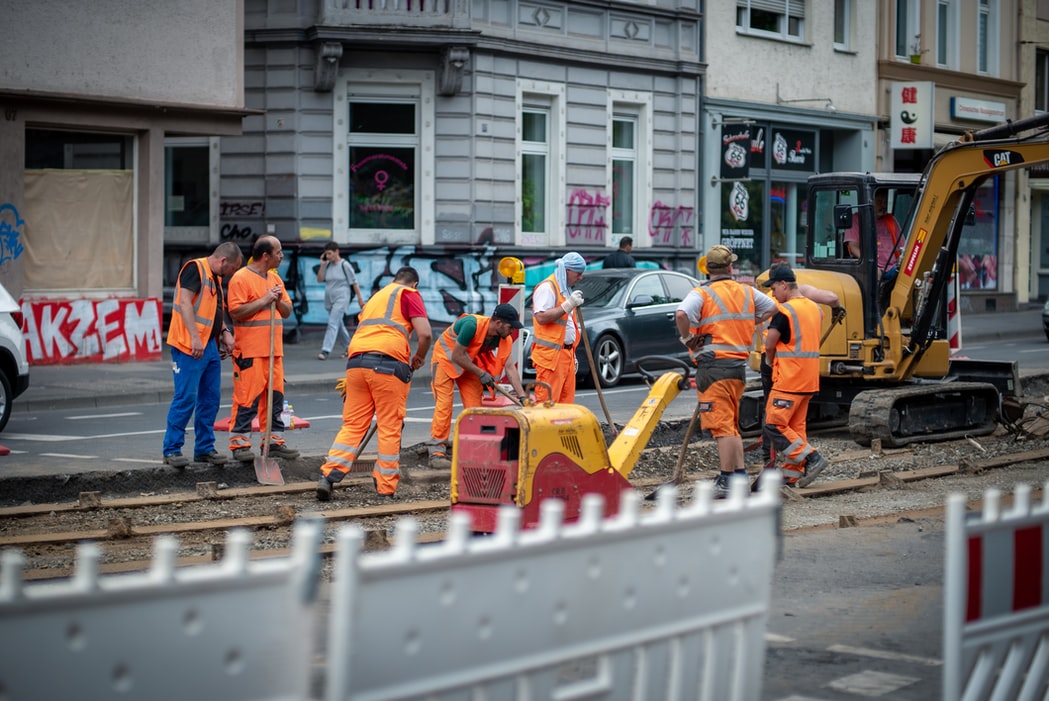
ONE in four roadworkers have suffered mental health issues following verbal or physical abuse from the public, new research has found.
The findings come following a Transport Scotland survey of the country’s trunk road maintenance firms, which include Amey, BEAR Connect and Autolink.
It revealed that almost one in ten staff said they’ve been subjected to physical abuse in the last year; one in five reported having missiles thrown at them in the past year; and nearly two out of three said they have been verbally abused by passing motorists.
John Willox, a BEAR Scotland operative, detailed the impact of a recent incident. He said, “I was operating a Stop/Go board at a work site. A car pulled up, the driver got out and verbally abused me aggressively. Eventually he got back into his car and then tried to drive around me. He mounted the verge, knocked over the Stop/Go board and actually clipped the side of my body to get past.
“He continued to shout abuse at other members of the team and drove dangerously through the live works area, speeding off before the police arrived. It was lucky no-one was seriously injured. Why do people think they can act like that and put others at risk?”
The trunk road maintenance companies, with the support of Transport Scotland, are committed to taking a zero tolerance approach in response to any further threats to their employees.
The Scottish Government’s minster for transport, Graeme Dey, said, “The abuse of our roadworkers is completely unacceptable and the results of the survey show just how big a problem it is. No one deserves to face this kind of behaviour while doing their job. I find it particularly upsetting to hear of the impact these incidents have on the mental health of staff, many of whom were carrying out essential maintenance of our trunk road network during the Covid-19 pandemic.
“The Scottish Government fully supports the efforts to raise awareness of these incidents and the call for action to tackle roadworker abuse. I would also like to thank front line staff for their continued hard work and dedication during the pandemic.”
Joe Docherty, HSEQ director for transport infrastructure at Amey and vice chair of safer highways, added, “We have spent the last few years seeking to educate the public about the human cost of abusing roadworkers, yet too many members of the public still seem to consider this a victimless crime. This survey demonstrates that more robust measures are required if we are to protect our workforce.
“In future, we will be gathering more evidence of abuse, including the use of road cameras and body cams, and ensuring those responsible are prosecuted to the extent of the law.
“We welcome the Scottish Government’s support and hope that helps to bring about a positive change in behaviour towards roadworkers.”
Iain Murray, BEAR Scotland managing director, commented, “It is totally unacceptable to expect regular verbal abuse that in the past has seeped over into physical abuse in your daily working life. It is not surprising that this survey reveals the wider impact of this on the mental wellbeing of our operatives – whether through being on the receiving end of an irate driver’s ire or the impact of repeated negativity from road users.
“The only way to address this is with a zero-tolerance approach. We are continuing to invest in vehicle and body cams which will ensure this behaviour is captured and footage can be used in prosecutions against offenders.”








